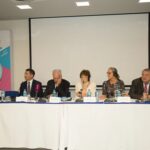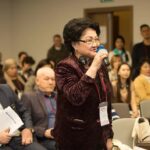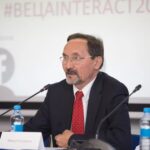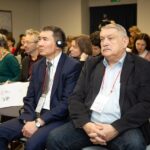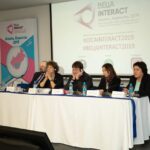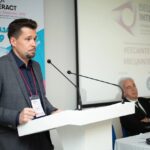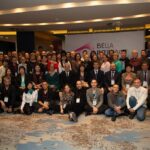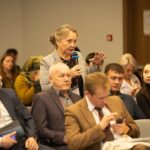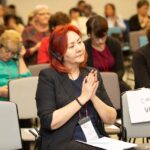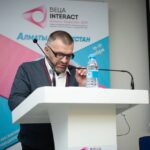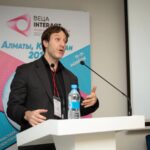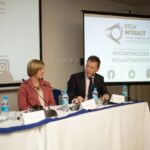On November 18-19, with the support of the Ministry of Health of the Republic of Kazakhstan, the first scientific workshop EECA INTERACT 2019 on HIV, tuberculosis, and hepatitis in Eastern Europe and Central Asia (EECA) was held in Almaty.
The international event was organized by the Amsterdam Institute for Global Health and Development (AIGHD), the Kazakh Scientific Center for Dermatology and Infectious Diseases of the Ministry of Health of the Republic of Kazakhstan, non-profit organizations AFEW Kazakhstan and AFEW International.
For two days, more than 100 researchers, representatives of communities and clinicians from Kazakhstan, Russia, Ukraine, Belarus, Uzbekistan, Kyrgyzstan, Tajikistan, Georgia and other countries shared their experiences, the latest scientific developments in the field of treatment of HIV, tuberculosis (TB), hepatitis in order to strengthen the scientific base and improve the situation in the region.
“AFEW has been working in the Eastern Europe and Central Asia region for about 20 years and constantly experiences a lack of data on the HIV, TB and viral hepatitis epidemics in the region, – says Anke van Dam, member of the international organizing committee of EECA INTERACT 2019; executive director of AFEW International. These data are needed to develop evidence-based policies and interventions. Through EECA INTERACT, AFEW strives to stimulate and facilitate research in the region. Also our goal is to foster new research interactions among leading investigators and those who represent the potential future scientific leadership for health care and research in the region and to build research and clinical capacity across EECA”.
EECA is the only region in the world where the HIV epidemic is still growing rapidly. UNAIDS estimates that as of 2018, about 1.7 million people in the Eastern Europe and Central Asia region are living with HIV. About 38,000 people died from AIDS in 2018.
Significant barriers to prevention and treatment services remain for people living with and affected by HIV, TB, and hepatitis across the region. For example, although the HIV epidemic in EECA is concentrated predominantly among key populations, particularly among people who inject drugs, coverage of harm-reduction and other prevention programs is insufficient to reduce new infections. The region urgently needs more effective strategies of prevention, treatment, and care and support that are tailored to the particular circumstances of individual countries.
“I hope EECA INTERACT will become an effective forum for discussion, the issues raised at scientific discussions, the exchange of experience, will allow us to put the necessary emphasis on the near and long-term prospects, and familiarize a wide circle of participants with new methods, developments and approaches on these issues. The abstracts will be appreciated, feedback will be established, the scientific community and the geography of further cooperation and investment will expand. This activity is necessary to achieve UNAIDS goals 90-90-90”, says Bauyrzhan Bayserkin, head of the local committee of the EECA INTERACT 2019 workshop; Doctor of Medical Sciences; Director of the Kazakh Scientific Center of Dermatology and Infectious Diseases of the Ministry of Health of the Republic of Kazakhstan.
EECA INTERACT 2019 took an innovative approach by bringing together experts in HIV, TB, and hepatitis to participate in the International Conference Committee developing the scientific program.
It included experts in the field of HIV, TB and hepatitis from around the world, including Michel Kazatchkine, UNAIDS Special Advisor on HIV, TB and Hepatitis in the EECA region; Catherine Hankins, professor, Deputy Director, Science at AIGHD, co-chair of the annual INTEREST conference; Alexey Alexandrov, head physician of the Minsk Regional Clinical Center “Psychiatry-Narcology”; Sergey Dvoryak, founder and senior scientist, UIPHP, professor at the department of social work, and many others.
EECA INTERACT will be an annual event and will be held in different countries of the EECA region to enable scientists from all countries to demonstrate their discoveries.
See more pictures here.











